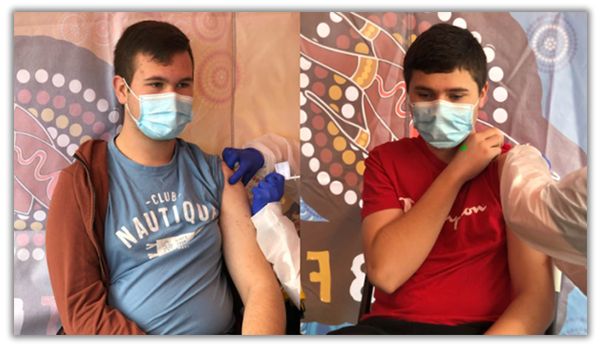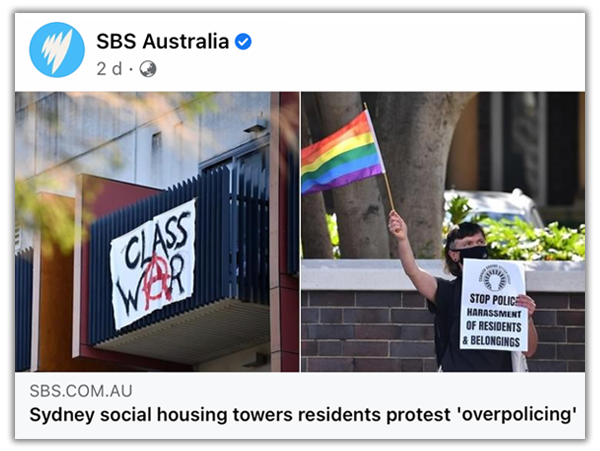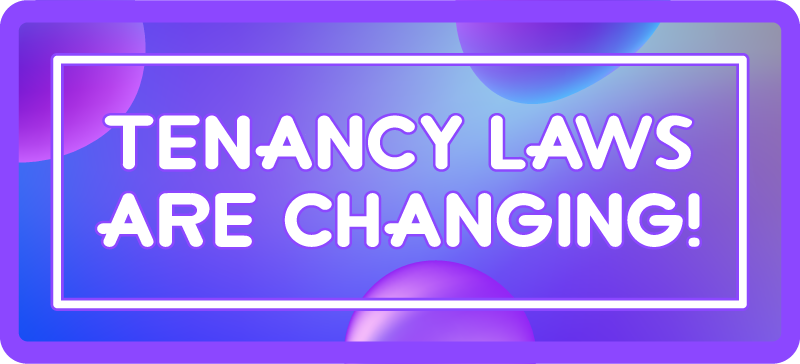Through lockdowns, moratoriums and housing crises – inequality keeps growing
30/09/2021
A version of this article first appeared in our regular email newsletter, Tenant News.
Moratorium extended, payments increased
Many renters breathed a sigh of relief a few weeks ago when the NSW Government announced an extension of the eviction moratorium until 11 November, alongside an increase to the Residential Tenancy Support Payment to $4,500. Once the moratorium lifts, transitional protections will also ensure renters can negotiate a reasonable payment plan, and are protected from eviction for debt built up over the moratorium.
However we remain concerned about landlords using 'no grounds' evictions to get around moratorium protections, and other impacted tenants who've felt forced to leave when their landlord hasn't agreed to reduce rent. Also, some landlords are currently failing to apply for the support package and pass this on as a rent reduction even where they have eligible tenants. The announcement of transitional protections to follow the moratorium period should make clear to landlords that if their tenant is impacted they will need to apply for the available support payment and apply this as a rent reduction. It's the right thing to do, and also a requirement of 'good faith' negotiations.
Not all lockdowns are created equal
Like the COVID outbreak itself, the effects of lockdown are proving worse for people who are already disadvantaged. And housing is a key factor in this growing inequality. While overseas travellers isolate in hotels, and some people own homes spacious enough to be able to follow official guidelines on separate bedrooms and bathrooms, others face very different circumstances. Many renters are in overcrowded housing (Fairfield Champion) or temporary and unstable accommodation (ABC News) because that's all that's affordable in this rental market – this makes it much harder to protect against infection, and follow the lockdown rules.
Similarly, housing which is dark, noisy, or in disrepair, has been shown to increase anxiety, depression and loneliness during lockdowns – COVID-19 exposes Australia's stark health inequalities and threatens to entrench them further (ABC News), and poor housing has direct impact on mental health during lockdown (ABC News). And while many repairs are on hold, property inspections continue, exposing renters to stress and danger of infection.
"Some are in a dinghy and others in a yacht"
A 17-year-old from Mt Druitt, who is trying to do his HSC lessons remotely while supervising his kindergarten brother and acting as a translator for his Egyptian-born parents, told the Sydney Morning Herald "It’s funny how the government is saying we’re all in the same boat. We’re in the same storm, but we’re in different boats. Some are in a dinghy and others in a yacht." – A tale of two Sydneys (Sydney Morning Herald)
Aboriginal communities in major battle

The COVID outbreak in western NSW has once again shown the strength and resilience of Aboriginal communities, even in the face of dangerous disregard by government. More than one-in-six residents in Wilcannia have now been infected after the virus spread rapidly in overcrowded homes (SBS NTIV). Aunty Monica Kerwin told a parliamentary inquiry she raised the potential issue a year ago, as part of her role on the local emergency management committee: "I felt at the time that nobody listened, nobody really cared what our opinion was" – Aboriginal elders warned of COVID dangers a year ago (ABC News). The NSW Government has admitted they could have responded earlier to the community's housing concerns (ABC News). There has been too much police involvement, and not enough housing & healthcare (The Conversation).
In the face of the COVID danger, the Aboriginal community is stepping up with a massive vaccination effort led by Aboriginal health workers and community leaders, both in regional areas (ABC News) and inner-Sydney (SBS NITV).
Social housing overpoliced

During this lockdown, it has been disappointing to see the times when authorities have chosen harsh policing over support and collaboration with the community. Helicopters overhead, troops on the streets, and $1,000 fines for vulnerable people who are genuinely confused, are not the best strategies for dealing with this crisis – A need for greater police caution in response to COVID-19 public health order breaches (Redfern Legal Centre).
Earlier this month, a sudden and poorly communicated hard lockdown of Common Ground community housing in Camperdown left residents confused and distressed. Common Ground, managed by Mission Australia, is home to many vulnerable residents who have poor mental health and disabilities. There was a significant police presence, and unlawful searches of residents’ deliveries and seizure of personal items. Alcohol was very tightly policed (news.com.au). Personal items were distributed to the wrong recipients.
The residents organised a protest – Police enforcing strict lock-in a ‘worst nightmare’ for vulnerable Sydney social housing residents (Guardian) Residents hung banners and put forward demands (City Hub), supporters waved flags in solidarity while exercising below.
Legal and human rights groups, including the Tenants' Union, published an open letter condemning the inappropriate policing and unlawful searches imposed on residents. We stand in solidarity with the residents, and reiterate the ongoing calls of many other organisations that public health responses should be led by community and health organisations, not by police. We call on all relevant authorities to communicate proactively, clearly, frequently, and respectfully with residents in any subsequent lockdowns, to respond to any reasonable demands from residents and to work with communities to ensure that the lockdown is carried out appropriately.
We hope that the emerging COVID outbreak at a public housing building in Waterloo will be handled more appropriately – ‘Scared as hell’: COVID-19 cluster emerges in Sydney’s public housing towers (Sydney Morning Herald)
Housing crisis continues across NSW
Alongside the specific issues of COVID, the broader housing crisis continues. Aggressive rent increases are making housing unaffordable for essential workers across Sydney (Domain) and in the regions (Business Insider). In regional NSW, the housing crisis is being felt particularly by renters. Recently the Tenants’ Union provided a submission to the NSW Regional Housing Taskforce. In our submission we provide data on the record low vacancy rates and the sharp increases in rents across regional NSW.
There are no easy or quick solutions. What is required is a longer-term strategy and a significant commitment of resources. While the planning system must be part of the response, increasing housing supply will not alone address the housing crisis. A much broader response and commitments across government are required to deliver on the secure, affordable, and liveable housing that the NSW Government has committed to delivering. Our recommendations to the taskforce include a significant increase to social and affordable housing in regional NSW, and reform of NSW tenancy law.
The missing key: social housing
Public and community housing could be part of the answer to solving the housing crisis, but instead its ongoing decline is making things worse. We know that the number of social housing dwellings is already woefully insufficient to address the massive numbers of people on the waitlist. A new report predicts that Australia will face a shortfall of nearly 200,000 social housing properties by 2031 – Stark warning over Australia's social housing timebomb (Canberra Times). Similarly in NSW, new research by the Centre for Social Impact confirms that both total expenditure on social housing per capita and social housing as a proportion of total housing stock are in decline.
More info:
- Renters Guide to COVID-19
- COVID & renting, after 11 November 2021
- COVID-19 Financial Incentives for Landlords
- Residential Tenancy support package (NSW Fair Trading)
- Unequal lockdowns • Pets in strata • Discrimination • And more news – Tenant News 21/09/21



